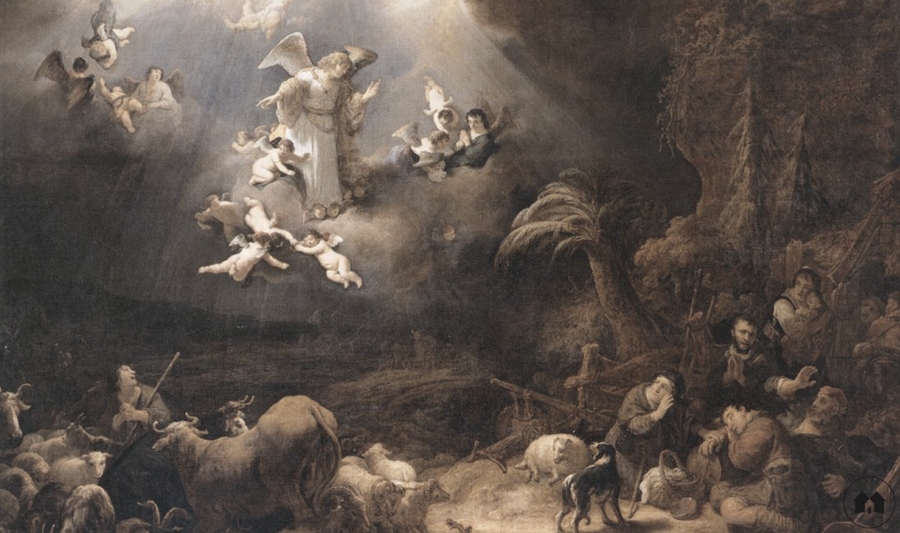I’ve always appreciated music for its ability to stir up emotion in me, almost as if it somehow reaches in and touches the deepest parts of my being.
I vividly remember as a child, standing inside our 80-foot grain silo, belting out every song I knew—at the top of my unashamed lungs, of course. I’m sure there was some Paula Abdul or Madonna mixed in among the hymns (and my own fabulous musical creations). To my mind, my angelic voice resonated magnificently off those walls, and straight into the heavens.
My impromptu silo concerts are, in hindsight, one of many reasons why I’m thankful that cell phones are a more recent invention … I am quite content not to have video documenting them.
There is something almost magical about a song, though. Music can instantly transport you back to a moment in time. For many people, it triggers powerful memories and emotions.
Some of my earliest Christmas memories are of neighbors caroling at our doorstep. We would huddle by the door, enjoying the sweet notes of neighborly love caught up by the wind. While people don’t go caroling house-to-house as much as they once did, hearing old familiar favorites everywhere you go is still a cherished tradition during the holidays.
Have you ever stopped to think about the words or the history of some of these old favorites?
One of my personal favorites, and possibly the world’s most popular carol, is Silent Night. I still get goose bumps listening to a good rendition. Silent Night was originally penned in 1816 as a poem in German, by a young priest named Joseph Mohr. Father Mohr had been assigned to shepherd a church in Austria. A few year after writing his poem, he asked organist and local schoolteacher Franz Xaver Gruber to compose music to accompany the words. Legend says the church organ was broken at the time, so Gruber wrote the music for guitar instead. Father Mohr and Gruber performed the music and lyrics for the first time themselves, at a Christmas Eve midnight mass in the year 1818. Nearly 50 years later it was translated into the English version we know and love today, and since then, into more than 300 languages and dialects around the world.
In 1914, during the unofficial Christmas truce of WWI, Silent Night was sung in the battlefield trenches because it was one of the few carols both the British and German soldiers knew.
The hymn’s words themselves speak to the simple beauty of the night surrounding the birth of Christ. They create a picture of a cool, calm night … a sky studded with stars … shepherds quietly caring for their sheep. From the start, the entire scene seems holy and almost reverent. Then a burst of glory pierces the calm, the moment our world is blessed beyond measure. There is Mary, a humble mother who is a mere child herself, a chosen vessel to bring salvation into a world of darkness. Then, as quickly as it began, the burst of excitement is over, and everything is peaceful and quiet again. Both mother and infant are pictured sleeping in tender sweetness. Something absolutely amazing has just happened while the world was sleeping.
Not at all like the fanfare we’d imagine this amazing moment would merit. How fitting, though. Isn’t that just the way God works? Quietly, tenderly, cradling us in His love, just waiting for that perfect moment to reveal Himself to us. Perhaps when we were in a dark place, dead as the night, He arrived. Bringing life and peace to just one soul is a miracle beyond imagination.
Isn't that just the way God works? Quietly, tenderly, cradling us in His love, just waiting for that perfect moment to reveal Himself to us. Click To TweetClose your eyes this Christmas season and let the words of the old Christmas hymns truly sink in. Listen with your heart, and invite the Holy Spirit to speak to you and give you a renewed appreciation for the gift of God’s grace, bestowed on us through Christ.
From my family to yours: have a safe and blessed holiday season this year.
Artwork: Angels Announcing the Birth of Christ to the Shepherds (circa 1639) by Govert Flinck (1615-1660); oil painting; currently housed at the Louvre Museum in Paris, France.

Love the image of a young Bridgitt doing silo concerts! And love the history of our beloved Silent Night. And grateful for the heavenly peace we are promised…a good reminder in the midst of our earthly chaos! 🙂
Haha, as long as it’s only the thought! 😋 I don’t embarrass easily, but… 🤣